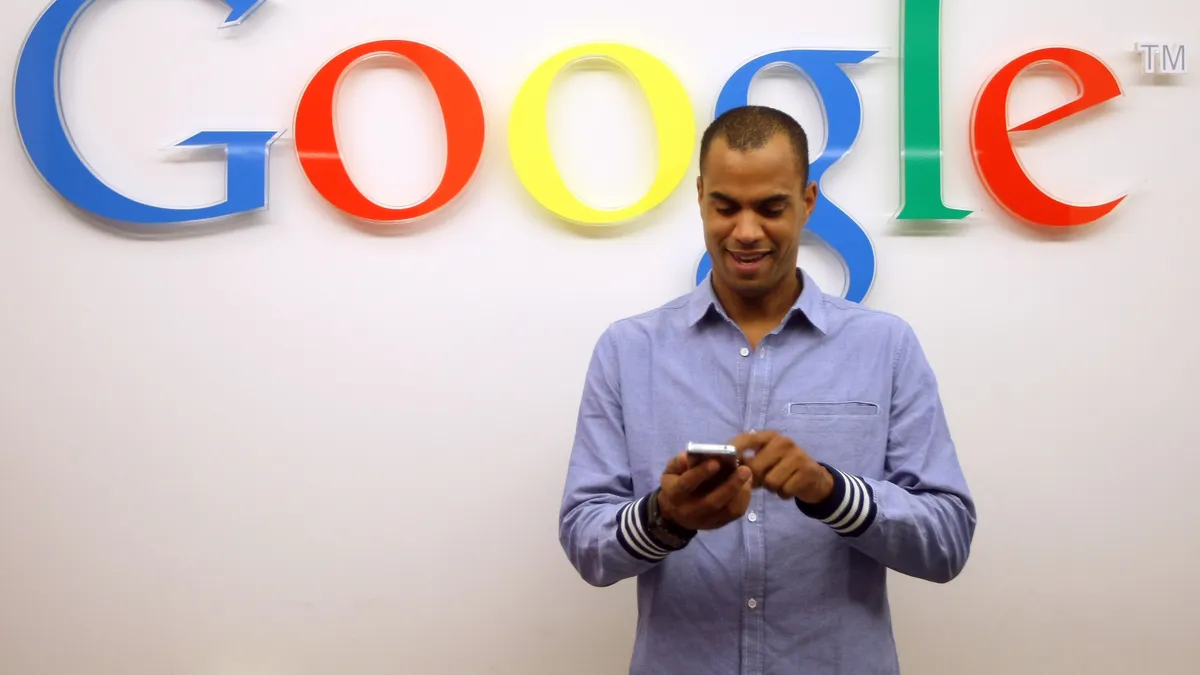Dive Brief:
- Google started its planned implementation of Brand Indicators for Message Identification (BIMI) into Gmail inboxes, per a press release. The anti-phishing framework, of which Google is a co-developer, was first announced in a company blog post last July.
- BIMI is an email authentication protocol that allows brands to verify their identity to email recipients through logos that appear alongside their emails. Brands must first pass through verification steps, such as implementing Domain-based Message Authentication, Reporting and Conformance (DMARC) and obtaining a BIMI certificate.
- By implementing BIMI, Google adds a sizable pool of email addresses to platforms already supporting the framework, including Yahoo and Fastmail. The move could help marketers fight against phishing scams that breed consumer distrust in brands and thwart their email marketing strategies.
Dive Insight:
Google's roll-out of BIMI is an effort to guard against email phishing scams in Gmail inboxes. Through phishing, a bad actor will disguise their email to look like that of a brand's, duping recipients into opening it and exposing them to consequent privacy risks. Under BIMI, however, any official email sent by a brand will appear alongside that brand's verified logo, indicating to recipients that the email is legitimate.
Brands will have to undergo a multistep process to enlist in the BIMI framework, including implementing DMARC to ensure validation of emails and logos and obtaining a BIMI certificate — also known as a Verified Mark Certificate (VMC) — to confirm rights to use logos' images. BIMI is being developed into a standardized protocol by the AuthIndicators Working Group, a committee of companies including Google, Fastmail, Verizon Media and others.
For marketers, Google's roll-out of BIMI could mean a more trustworthy ecosystem in which to reach consumers via email on mobile and desktop devices. Yahoo Mail, which is owned by Verizon Media, reported an average 10% increase in engagement under the BIMI framework, per the release. Gmail is the second most popular email client behind Apple iPhone's client, controlling over 30% in market share, according to an annual report by Litmus. Combined with other BIMI-supporting clients like Yahoo Mail and Fastmail, Gmail could soon create a potential path for brands to try to regain trust from a large pool of consumers and help rectify what has become a fraught marketing channel.
Phishing scams have run rampant across brand categories, with 84% of U.S. organizations reporting to have experienced a phishing or ransomware attack in the last year, according to an Osterman Research study cited by IT Pro. The shift to remote work during the pandemic has intensified these issues, per the study, and affected consumers have become highly distrustworthy of brands.
Other companies are launching efforts to create a more privacy-safe email landscape. Apple's iOS 15 update, which is scheduled for later this year, contains a Hide My Email feature that randomizes a user's email address when registering with an app or website. The security change could force marketers to create valuable promotions to entice users to opt-in to sharing their personal information. As the death of third-party cookies looms, brands are likely to increasingly rely on first-party data exchanged through email to inform their targeted marketing efforts.















